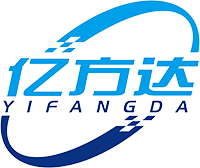Discussion on 5V1A power chip solutions for integrated power management chips
In modern electronic products, the 5V1A power supply solution is widely used. Therefore, integrated power management chips have become a very promising solution. These chips can integrate multiple functions, including voltage regulation, current control, overvoltage protection, and overload protection, greatly simplifying circuit design and layout. The 5V1A power chip solution, using an integrated power management chip, achieves advantages such as **high efficiency, good stability, and small size.
The working principle of the 5V1A power chip solution is to use the internal circuit structure of the integrated power management chip to regulate and control the input voltage, outputting a stable 5V voltage and 1A current. While ensuring stable output, it can also monitor and adjust the voltage and current in real time to ensure the reliability of the power supply.
Compared with traditional discrete components, integrated power management chips have obvious advantages in terms of power consumption, efficiency, and cost. Their high integration reduces the number of components on the circuit board, improving overall performance. At the same time, it reduces the complexity of the peripheral circuit and lowers the possibility of failures.
In summary, integrated power management chips have shown great potential and advantages in 5V1A power chip solutions, providing a more convenient and reliable solution for the design and production of electronic products.
The working principle of the 5V1A power chip solution is to use the internal circuit structure of the integrated power management chip to regulate and control the input voltage, outputting a stable 5V voltage and 1A current. While ensuring stable output, it can also monitor and adjust the voltage and current in real time to ensure the reliability of the power supply.
Compared with traditional discrete components, integrated power management chips have obvious advantages in terms of power consumption, efficiency, and cost. Their high integration reduces the number of components on the circuit board, improving overall performance. At the same time, it reduces the complexity of the peripheral circuit and lowers the possibility of failures.
In summary, integrated power management chips have shown great potential and advantages in 5V1A power chip solutions, providing a more convenient and reliable solution for the design and production of electronic products.
Previous page:
Next page:
Related news





